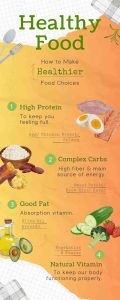Did you know that approximately 34 million Americans are on a low-carb or keto diet? That’s a significant number of people looking to cut down on sugar and embrace healthier alternatives. If you’re one of them, you’ve likely explored various sweeteners to satisfy your sugar cravings while staying within your dietary goals. In this article, we’re diving deep into two popular choices: Allulose and Erythritol. These natural sugar substitutes are gaining popularity among health-conscious individuals for their low-carb and keto-friendly properties. Let’s explore the nutrition, benefits, and uses of Allulose vs. Erythritol to help you make informed choices.

Allulose vs Erythritol Nutrition
Allulose Nutrition Allulose, often called D-psicose, is a unique “rare sugar” found in select foods like figs, raisins, and even wheat (gluten-free, by the way). It closely resembles regular sugar in structure, but here’s the kicker: your body can’t digest it. Studies show that you absorb up to 80% of allulose, but it passes through without being metabolized. Result? Almost zero calories and no blood sugar spikes. Plus, it’s gentle on your gut, unlikely to cause bloating or gas. A teaspoon of allulose has a mere 2 calories, 0g fat, 4g total carbs (though not contributing to net carbs), and 0g protein.
Allulose Health Benefits Although allulose is relatively new to the scene, it’s considered safe by the FDA. Some early research suggests it might reduce inflammation and assist in weight loss, particularly for people with obesity or type 2 diabetes.
Erythritol Nutrition Erythritol belongs to the sugar alcohol family—a natural sweetener between sugar and alcohol molecules. Like allulose, you lack the enzymes to digest it, so it doesn’t impact blood sugar or insulin levels. Erythritol has an edge: it’s almost entirely resistant to fermentation by gut bacteria, translating into a lack of side effects like bloating or gas. A teaspoon of erythritol contains only 1 calorie, 0g fat, 4g total carbs (again, no net carbs), and 0g protein.
Erythritol Health Benefits Apart from being a low-calorie sweetener, erythritol offers a bonus for your pearly whites. Studies indicate that it can kill the bacteria responsible for plaque formation, promoting dental health.
Read More: Custom Keto Diet Plan Review: A Tailored 8-Week Weight Loss Plan By Rachel Roberts
How to Use Allulose and Erythritol in Baking
Both allulose and erythritol are baking champs. Their granulated forms and melting properties make them perfect 1:1 substitutes for sugar in your favorite recipes. Plus, they closely mimic sugar’s taste without the bitter aftertaste you might encounter with other sweeteners. But here’s a fun fact: using higher amounts may create a mild cooling effect, making your baked goods feel slightly cool on your tongue. Keep in mind that they’re about 70% as sweet as sugar, so adjust accordingly for sweetness levels.

Choosing Between Allulose and Erythritol
Now, the million-dollar question: which one should you pick? Both allulose and erythritol are fantastic low-carb sugar substitutes with unique perks. Allulose might appeal to you if you’re looking to reduce inflammation and manage weight. It’s also easier on digestion for most people. On the other hand, erythritol is a dental superhero and an excellent choice if you prefer the taste of regular sugar without any digestive concerns. Personal preferences and your digestive system may sway your decision.
Conclusion
In the quest for healthier sugar alternatives, Allulose and Erythritol shine as top contenders for those following low-carb or keto diets. Allulose, with its minimal calories and potential anti-inflammatory properties, goes head-to-head with Erythritol, known for its dental health benefits and sugar-like taste. Whether you choose Allulose or Erythritol depends on your health goals and how well your body tolerates them. Whichever path you take, these sweeteners offer a satisfying solution to your sugar cravings while keeping you on the path to better health.
Read More :The Custom Keto Diet: A Personalized Approach to Ketogenic Weight Loss
Read More :Keto Diet Meal Plan: A 7-Day Guide to Success on the Ketogenic Diet
